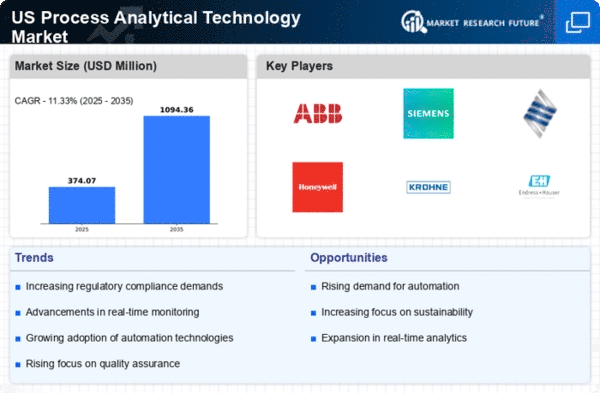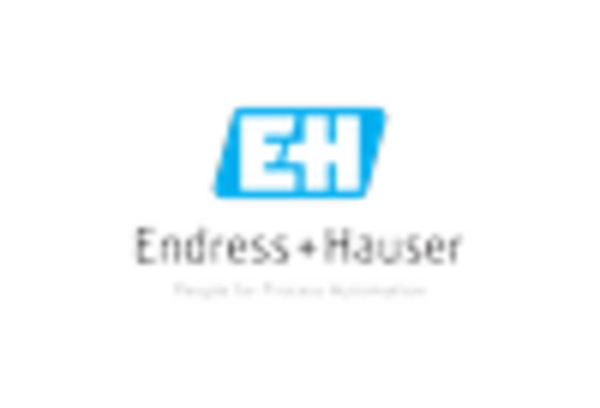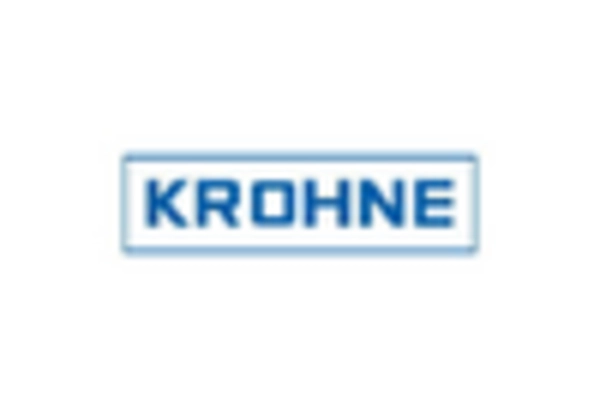Increased Investment in R&D
Increased investment in research and development (R&D) is fostering growth in the process analytical-technology market. Companies are allocating substantial resources to develop innovative solutions that address the evolving needs of various industries. This investment is crucial for advancing the capabilities of process analytical technologies, enabling more sophisticated data analysis and process control. The R&D expenditure in this sector is projected to rise by approximately 8% annually, reflecting a commitment to innovation and improvement. As organizations strive to stay ahead of the competition, this focus on R&D is likely to drive the market's expansion.
Rising Demand for Real-Time Monitoring
The process analytical-technology market is experiencing a notable increase in demand for real-time monitoring solutions. Industries such as pharmaceuticals and chemicals are increasingly adopting these technologies to enhance operational efficiency and ensure product quality. The ability to monitor processes in real-time allows for immediate adjustments, reducing waste and improving yield. According to recent data, the market for real-time monitoring solutions is projected to grow at a CAGR of approximately 12% over the next five years. This trend indicates a shift towards more responsive manufacturing processes, which is likely to drive further investment in process analytical technologies.
Growing Focus on Operational Efficiency
The pursuit of operational efficiency is a key driver in the process analytical-technology market. Companies are increasingly recognizing the importance of optimizing their processes to reduce costs and improve productivity. By implementing process analytical technologies, organizations can identify inefficiencies and streamline operations, leading to significant cost savings. Recent studies suggest that businesses that adopt these technologies can achieve operational improvements of up to 20%. This focus on efficiency is likely to propel the market forward as more companies seek to leverage analytical technologies to enhance their competitive edge.
Regulatory Compliance and Quality Assurance
Regulatory compliance remains a critical driver for the process analytical-technology market. As industries face stringent regulations, particularly in pharmaceuticals and food production, the need for reliable analytical technologies becomes paramount. These technologies facilitate compliance with regulations set forth by agencies such as the FDA and EPA, ensuring that products meet safety and quality standards. The market is expected to witness a growth rate of around 10% as companies invest in process analytical technologies to streamline compliance efforts and enhance quality assurance protocols. This focus on regulatory adherence is likely to bolster the market's expansion.
Technological Advancements in Sensor Technologies
Technological advancements in sensor technologies are significantly influencing the process analytical-technology market. Innovations in sensor design and functionality are enabling more accurate and efficient data collection, which is essential for process optimization. The integration of advanced sensors into manufacturing processes allows for better control and monitoring, leading to improved product quality and reduced operational costs. The market for sensor technologies is anticipated to grow by approximately 15% in the coming years, driven by the increasing need for precision in industrial applications. This evolution in sensor technology is likely to enhance the capabilities of process analytical technologies.
.png)















